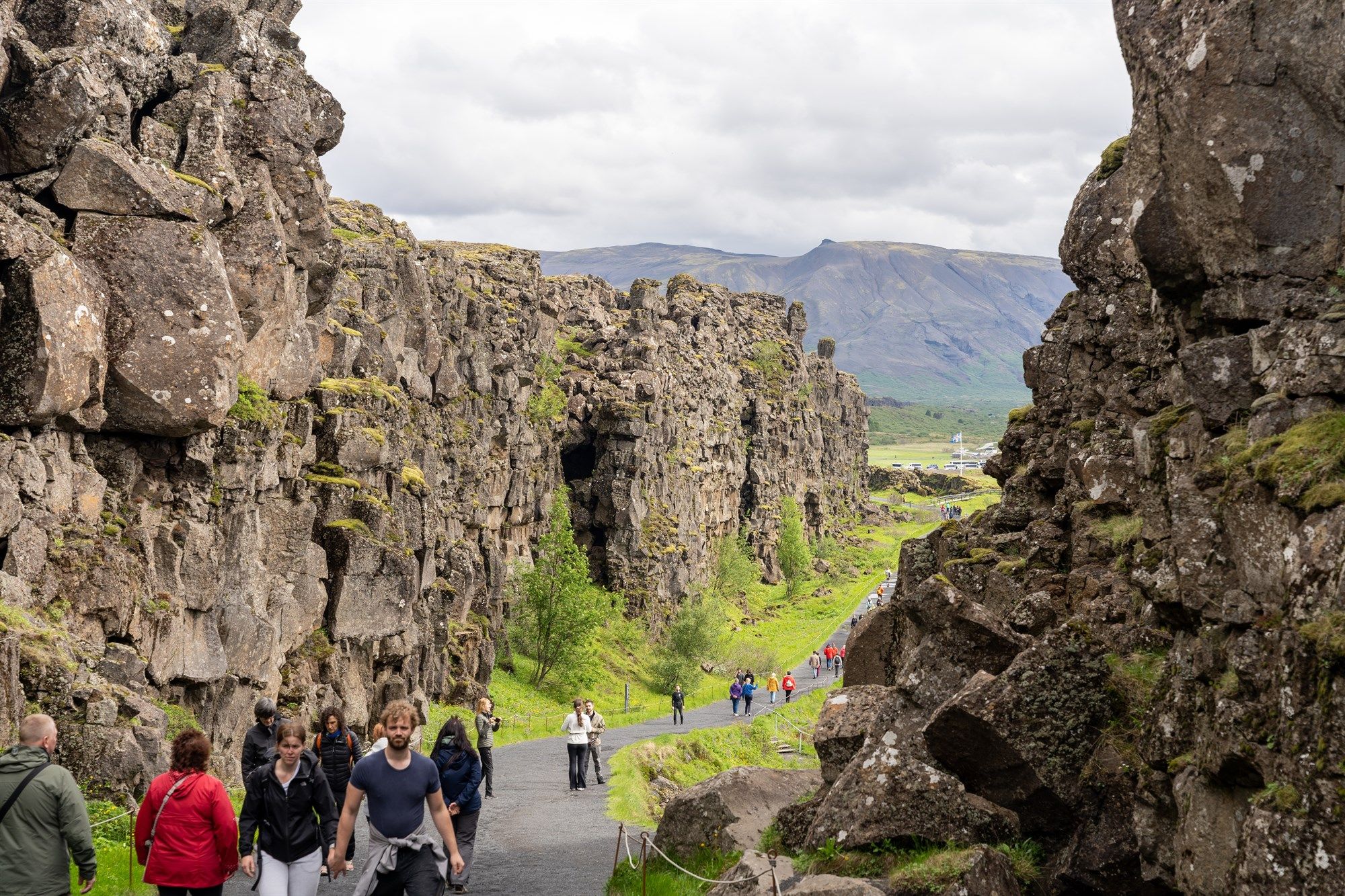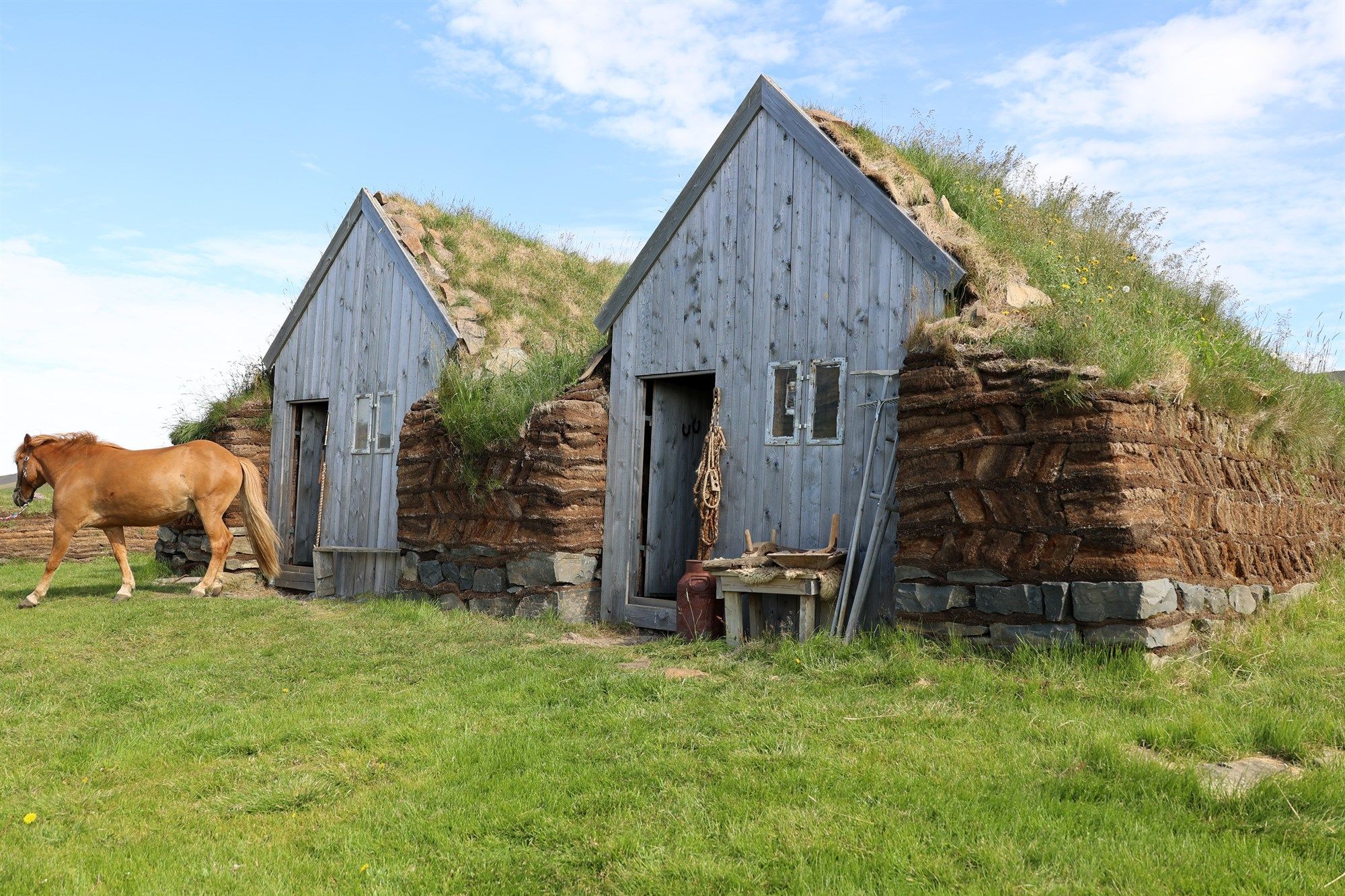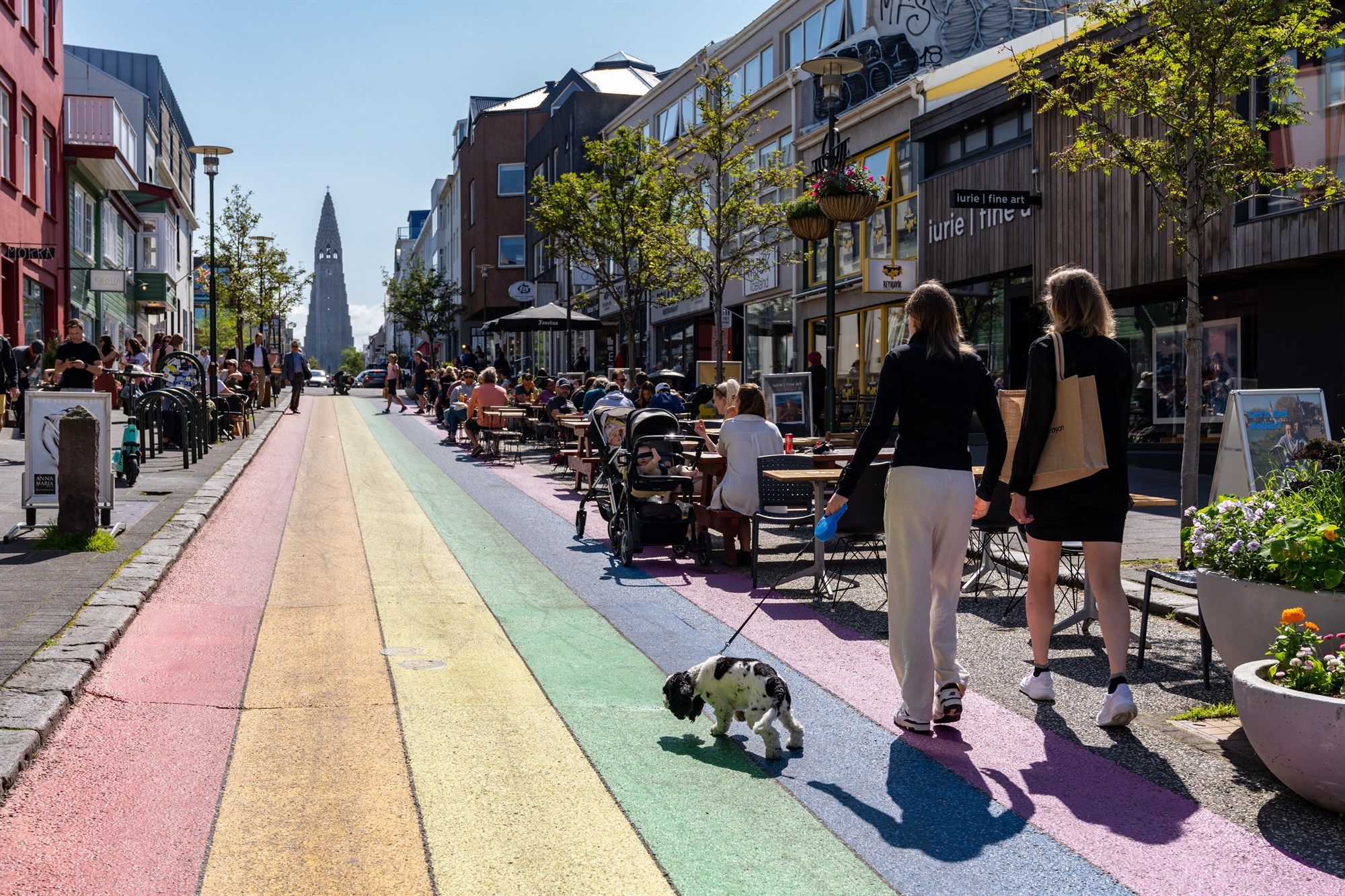6 min read
August 30, 2023
Summarize with AI:
The Fascinating History of Iceland: From Vikings to Modern Sustainability
Updated: 17/10/2025
Key Summary
• Discover how Iceland’s history evolved from Viking settlement to modern sustainability.
• Learn why Thingvellir National Park and the Althing Parliament are central to Iceland’s story.
• Understand how geothermal energy and renewable power define modern Iceland.
• Plan your trip with Zero Car Rental, offering electric and hybrid cars with all insurance included and zero excess.
• Explore more with our guides on the Golden Circle, Driving in Iceland, and Icelandic culture.
Nestled in the North Atlantic Ocean, Iceland is a land of captivating history and breathtaking landscapes. From its volcanic birth to its modern identity as a forward-thinking Nordic nation, Iceland’s story is filled with resilience, creativity, and a deep connection to nature.
How Was Iceland Formed by Fire and Ice?
Iceland’s history began millions of years ago when volcanic eruptions and glaciers sculpted its rugged terrain. Every mountain, valley, and waterfall tells the story of a land shaped by powerful natural forces.
Volcanic activity continues to define Iceland’s character. In recent years, eruptions at the Meradalir volcano and Litli Hrútur volcano on the Reykjanes Peninsula have demonstrated how alive the island still is. For visitors, Thingvellir National Park offers both geological wonder and historical importance. It is here that the tectonic plates of Europe and North America meet, and where Iceland’s first parliament, the Althing, was founded in 930 AD.
Who Were the Vikings That Settled Iceland?
In the late ninth century, Norse explorers arrived and established the first settlements in Iceland. The Icelandic sagas capture their lives in vivid detail, blending history with legend.
Thingvellir was at the heart of early Icelandic society, serving as a gathering place for lawmaking and community life. Although the parliament now meets in Reykjavik, its historical site remains sacred.
Travelers can follow the path of the sagas by driving from Reykjavik to Reykholt, the home of Snorri Sturluson, author of Heimskringla and The Prose Edda. Before setting off, review Practical Information for Drivers and our Driving in Iceland guides to plan your route and stay safe on the road.

What Challenges Did Iceland Face During the Medieval Period?
The medieval period brought conflict and foreign influence. Civil strife in the thirteenth century led to Norwegian rule, followed later by Danish control. Despite this, Icelandic identity endured through storytelling, religion, and language.
The Reformation in the sixteenth century transformed the nation’s spiritual life while preserving its literary soul. Explore this period at the National Museum of Iceland in Reykjavik or at the Saga Centre in Hvolsvöllur, both of which showcase the resilience of Iceland’s culture.
How Did Iceland Gain Its Independence?
After centuries of foreign rule, Iceland began its path toward independence in the early twentieth century. Home rule was established in 1904, sovereignty was achieved in 1918, and full independence came peacefully in 1944.
Reykjavik grew into a center of art, literature, and equality. Walking through Skólavörðustígur Rainbow Street or visiting Hallgrímskirkja Church gives visitors a sense of the nation’s pride and progress.
To explore Iceland responsibly, choose Zero Car’s electric and hybrid car rentals. All insurance is included with zero excess, making it easy to travel sustainably across the country.

How Has Nature Powered Iceland’s Modern Growth?
Geothermal and hydroelectric energy are at the heart of Iceland’s success. The country generates nearly all its electricity from renewable sources, balancing progress with preservation. Spas like the Blue Lagoon and Mývatn Nature Baths are perfect examples of this balance, offering relaxation powered by natural heat.
What Defines Iceland’s Modern Innovation and Global Role?
Iceland today is admired for innovation, equality, and environmental leadership. From technology startups to sustainable tourism, the country has transformed into a model for progress.
Travelers are drawn by Iceland’s scenery and spirit. Whether you are chasing the Northern Lights or exploring glaciers and black sand beaches, Iceland offers a seamless blend of culture and nature. For inspiration, explore our Driving in Iceland articles that combine route guides with practical safety insights.

Why Is Iceland’s History Considered a Living Saga?
Iceland’s story is alive in its landscapes, literature, and people. Every fjord, village, and smile carries echoes of resilience. This is not just a history to read, but one to experience firsthand.
Before your trip, explore more on the Zero Car blog for insights into Icelandic culture, waterfalls, and self-drive adventures. When you are ready, book with the fastest car rental service in Iceland and explore Iceland at your own pace.
What Role Do Sagas Play in Icelandic Culture?
The Icelandic sagas, written between the twelfth and fourteenth centuries, blend myth, law, and legend. Works such as Njál’s Saga and Egil’s Saga remain central to the national identity.
For a cultural deep dive, visit Reykholt, where Snorri Sturluson lived and wrote, or explore Reykjavik’s literary heritage. To learn more before your visit, browse our Icelandic culture section for modern insights into this literary legacy.
Which Museums and Historical Sites Best Tell Iceland’s Story?
Reykjavik’s museums bring history to life. The National Museum of Iceland displays artifacts from settlement to modern times, while the Settlement Exhibition preserves a Viking longhouse from 871 AD. In the south, the Saga Centre in Hvolsvöllur celebrates Njál’s Saga and the lives of early settlers.
For a balanced itinerary, pair these cultural stops with scenic routes using our Driving in Iceland travel resources.
What Do Iceland’s Legends of Elves and Hidden People Reveal?
Folklore is a vital part of Icelandic culture. Tales of elves, trolls, and hidden people (huldufólk) connect Icelanders to their landscape and remind travelers to tread lightly. In regions like Borgarfjörður Eystri and Snæfellsnes, locals still tell stories of the unseen.
For more on these traditions, explore our Icelandic culture articles, which highlight how myth and respect for nature remain deeply intertwined in modern Iceland.
How Can Travelers Experience Iceland Sustainably?
Iceland leads the world in renewable energy, drawing nearly all power from geothermal and hydro sources. Visitors can support this sustainability by renting an electric car and following eco-friendly travel practices.
Charging stations are located along the Ring Road and at major attractions. Check out the map of electric charging stations in Iceland here.
What Makes Each Icelandic Season Unique for Travelers?
Every season brings its own beauty. Summer offers endless daylight under the Midnight Sun, while winter nights come alive with the Northern Lights. Rural stays and farm experiences provide a closer look at Iceland’s warm hospitality and strong traditions.
Before driving into the Highlands or Westfjords, check Zero Car’s road updates to plan your route and ensure a safe journey.
Why Should You Explore Iceland with a Local Partner?
Iceland’s history is a story of balance between people and nature. Traveling with Zero Car Rental allows you to experience that story responsibly. With all insurance included, zero excess, and a fleet of electric and hybrid vehicles, Zero Car helps travelers explore Iceland freely while supporting sustainable travel.
Before your trip, explore the Zero Car blog and plan routes, prepare for the weather, and explore like a local.